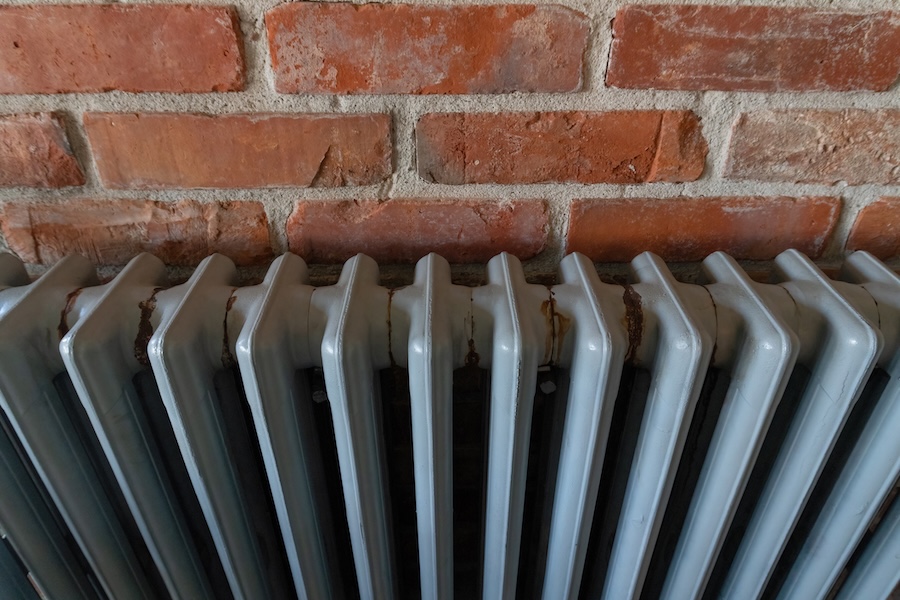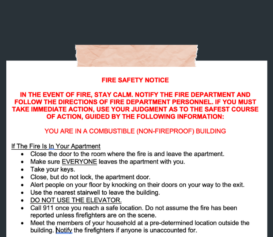The City Council just approved a new law requiring steam radiator inspections in multiple dwellings. The law, passed in response to the death of a Brooklyn infant (per Crain’s), mandates inspections in covered dwelling units once every two years.
Basic Inspection Details
INT-925-A was passed during the NYC City Council meeting on October 9th. It was first introduced in May 2024, with some amendments and changes made to the final approved version.
Here are the basics:
- “Biennial” inspections of steam radiators would be required in apartments where a child under age 6 resides (a “covered dwelling unit”)
- Biennial means once every 2 years
- These inspections would also be required in the common areas of these buildings
- Inspections that reveal “defects or damage” would need to be corrected within 14 days of the inspection date
- Any hazardous conditions would require the owner to “remove the steam radiator from service within 24 hours of the inspection”
- They’d also need to repair/replace the device within 7 days
- Owners are required to maintain inspection records, and would be subject to civil penalties for “insufficient recordkeeping.”
Per the law, inspection requirements would not apply to owner-occupied condominiums and cooperatives. They would apply to units not occupied by the owner or owner’s family.
Importantly, the law also states:
Notwithstanding any other provision of this article, nothing herein shall be construed to alter existing or future agreements which allocate responsibility for compliance with the provisions of this article between a tenant shareholder and a cooperative corporation or between the owner of a condominium unit and the board of managers of such condominium
The Who and What
Based on the law, we know who will be able to perform inspections:
Inspector. The term “inspector” means a licensed master plumber, high-pressure boiler operating engineer or stationary engineer, oil burning equipment installer, mechanical contractor, building superintendent, heating plant technician employed by the New York city housing authority, heating maintenance worker employed by the New York city housing authority, an individual working under the direct and continuing supervision of a licensed master plumber, an individual working under the direct and continuing supervision of a licensed high-pressure boiler operating engineer or stationary engineer, an individual working under the direct and continuing supervision of a licensed oil burning equipment installer, or an individual working under the direct and continuing supervision of a mechanical contractor that conducts inspections of steam radiators pursuant to this article.
Finally, we also generally know what needs to be reviewed during inspections. Each component of the steam radiator must be inspected to determine if it’s in safe operating condition. Per the law, “the department” (likely HPD or possibly DOB) may also establish specific inspection requirements. Additionally, a visual inspection must be performed for indicators of possible defects or damage, including (but not limited to):
- Leaking water
- Browning floors or walls
- Signs of corrosion on radiator or surrounding services
- Any other evidence of water damage
Records & Fines
Inspection records are required to include several details including the following:
- Property address, unit, and steam radiator location
- Name & address of the inspector
- Inspector license number, or self-certification by building owner if performed by superintendent (that super has reviewed the provided department materials)
- Inspection date
- Results, including: status of each component, any visual indicators of possible defects/damage, any hazardous conditions found
- Actions taken to remediate defects, damage, or hazardous conditions, as applicable
Failing to record the above may result in a penalty of “not more than” $500 to owners.
It’s worth noting – the law doesn’t explicitly state that inspections must be filed. It only references recordkeeping, and failing to keep records. That’s not to say that HPD won’t require filing, or may require it in the future. Stay tuned for more updates here.
Resident Notifications
The language of the new law ties steam radiator inspection requirements directly to annual safety notice mailings.
In addition to required language in leases regarding landlord’s obligation to inspect steam radiators in covered units, owners must also obtain information about children in units via the existing annual safety notice mailings process. That includes sending a notice, collecting responses, performing inspections based on responses, and seeking out information from non-resposive residents.
Department Rules
As is the case with most new property-adjacent laws, the appropriate city department will now create new rules to clarify and expand on the above requirements.
In addition to specific inspection rules we mentioned above, the law says that the department shall develop “additional rules” for building superintendents performing inspections (as opposed to the other individuals listed above). They shall also develop “informational materials and a checklist indicating best practices” for inspections. We’ll also likely see additional clarification on inspection timing (calendar year or otherwise), enforcement, and more. And given that annual safety notice mailings are referenced in the law, we may see adjusted verbiage for the 2027 mailings season.
The effective date is 180 days after becoming law, or around 6 months from the day it’s signed by the Mayor. If it goes unsigned, the law will automatically go into effect 30 days after 10/9. All that said – we generally expect this to go into effect in late Winter/early Spring 2026, with DOB or HPD rules preceding its official effective date and rollout.
As always, we’ll keep your team updated on details & how you can track these inspections using your SiteCompli and InCheck accounts.




